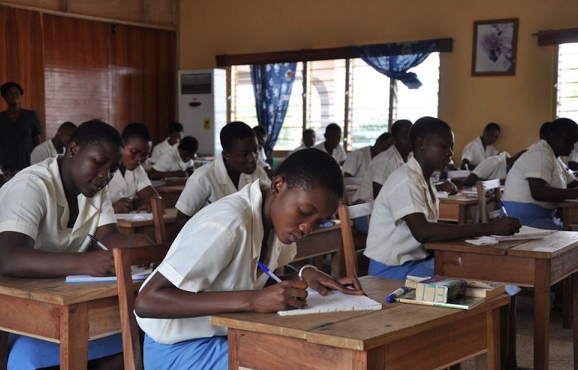Researching the politics of development
Blog

Ghana now has free senior high school education – but how do we ensure quality outcomes?
4 December 2017
Experts on the politics of education from Ghana’s Centre for Democratic Development, Mohammed Awal and Franklin Oduro investigate the pros and cons of Ghana’s new education policy… In September 2017, the government of Ghana introduced yet another ambitious education sector reform policy: the implementation of a Free Senior High School Programme. Under the new policy, all newly enrolled students in public senior high school from the beginning of the 2017/18 academic year will not be required to make payments as a condition or their admission and the government will pay. The objective of the policy, according to the president, is to redefine basic education by ensuring that every Ghanaian child attends school from kindergarten to senior high school, which will now be the basic education that every child is required to receive.
In September 2017, the government of Ghana introduced yet another ambitious education sector reform policy: the implementation of a Free Senior High School Programme. Under the new policy, all newly enrolled students in public senior high school from the beginning of the 2017/18 academic year will not be required to make payments as a condition or their admission and the government will pay. The objective of the policy, according to the president, is to redefine basic education by ensuring that every Ghanaian child attends school from kindergarten to senior high school, which will now be the basic education that every child is required to receive.
This policy has been a long time coming: The New Patriotic Party (NPP), led by the current president Nana Akufo-Addo, pledged to introduce a fee-free senior high school policy in its election 2008 and 2012 manifestos. The party failed to win these two elections, but showed deep commitment to the policy, when it again made the introduction of free high school education one of its major campaign promises in the 2016 elections. When the party won the 2016 elections, the new president affirmed the party’s commitment to fulfil the campaign promise in his first State of the Nation Address.
It took only nine months into the new administration for this social intervention policy, arguably one of the major reforms in the education sector, to be rolled out. However, the introduction of the policy, and subsequent implementation of the Free Senior High School Programme, generated a lot of uncertainties and unease in the minds of Ghanaians and policy watchers. Many analysts of the programme have argued that the absence of comprehensive policy documents – except for the budget statement and the president’s State of the Nation Address – to inform public discussion and scrutiny of the policy raises key questions about its intent.
Among the key issues that dominated public discourse included: the feasibility of the programme within the context of existing education sector challenges; funding sources; and how to ensure and maintain quality learning outcomes. The discussions, in particular, on how to ensure quality learning outcomes and the politics, policy and institutional option to realise that, are in our mind the most important to have.
Already, on the positive side, the introduction of the policy has enabled over 400,000 students to be enrolled, thereby expanding access to secondary education. On the negative side, the implementation of the programme has been attended by a number of problems, challenges and fears. The challenges include the absence of adequate school infrastructure to accommodate the expected increased enrollment, and concerns with growing deficit in teacher numbers relative to increasing student population. There has also been concerns and fears expressed about how the policy will destroy some of Ghana’s prestigious public Senior High Schools, the so-called “Ivy League Schools” which have developed, unique, informal governance arrangements at the school level to ensure quality learning outcomes over the years. Others have also raised the problem of sustainable financing for the program and expressed doubt over whether government can find the necessary resources to fund the policy.
Critics of the reform have also pointed to the emerging problems and concerns in the implementation of the free Senior High School programme as the outcome of a policy focus on ensuring access (mass enrolment) rather than the concerns for quality (building structures to support learning outcomes) in Ghana’s educator sector policy reform.
As we have argued elsewhere,the underlying driver of social service provisioning, such as this policy in the education sector, lies in the nature of Ghana’s political settlement. The incentives to win and maintain power and favour in Ghana’s increasingly competitive political system lead to boosted public investments in public goods provisioning in the short term. But this will also undermine the needed incentives to drive up public sector performance, in this instance higher quality learning outcomes in the education sector. In other words, we argue that Ghana’s political settlement – underpinned by competitive electoral politics – has the tendency to generate perverse incentives for ruling coalitions to look for and implement short-term policy responses at the expense of long-term policy choices that deal with the structural challenges facing Ghanaian society, particularly in the provision of quality public service delivery.
 Actor Abraham Attah (left) is ambassador for the programme.
Actor Abraham Attah (left) is ambassador for the programme.
In this instance, we suggest that while the policy intent of the free senior high school programme may be positive, progressive and targeting human resource development, the speed with which the NPP government rolled this programme out, in the absence of comprehensive policy, seems to suggest that the government is responding to its campaign promise through a short-term tangible policy programme. We are also very concerned with the effects this increased enrolment will have on quality outcomes. In our forthcoming ESID working paper on education, focusing on decentralisation and teacher accountability and how politics shapes quality outcomes (find a policy brief generated from the paper here), we argued that the general failure to improve accountability in the education sector has led to poor educational outcomes, which directly reflect how politics and governance work in Ghana. We note that Ghana’s blend of multi-party competition and patron-client politics generates much stronger incentives to improve access to education service delivery at the expense of ensuring quality outcomes.
Decentralisation as a policy response to improving education sector governance, we find, has generated insufficient incentives, from either a top-down or bottom-up direction, for effective forms of policy implementation and accountability to emerge at scale. However, in spite of these political and governance challenges, we have also seen how decentralisation has facilitated the emergence of a developmental coalition of state and non-state actors at district and school levels with the capacity to devise and enforce problem-solving solutions to local problems that has improved accountability and good outcomes. This kind of coalition – a partnership of politicians, bureaucrats and citizens to ensure that learning takes places in school – is being recognised by the recently released World Development Report 2018 as critical to ensuring quality learning outcomes and realising the promise of education.
We will suggest, therefore, that any efforts to design policy and institutional arrangements to improve quality learning outcomes under the new free senior high school programme and in the education sector more broadly, must take into consideration three key issues.
- First, to understand the education sector and education service delivery not only as a technical issue, but as a domain of resource allocation that plays a political as well as a developmental role.
- Second, aligning political/democratic decentralisation and administrative de-concentration within formal governance arrangements in the education sector is required for any interventions to improve quality outcomes to be relevant. There is the need to ensure politics and institutional coherence between the centralised aspects of educational sector governance, as well the ways in which district-level politics play out.
- Third, there is need to harness horizontal institutions (PTAs/SMC, community and faith-based organisations) at the district and community levels to counterbalance the vertical institutions of the state decentralised through education sector reforms.
In this regard, deepening the education sector decentralisation reforms, with the aim of incorporating informal governance structures and actors, and recognising their critical roles in promoting accountability at the district and school level will be key to any reform to improve quality outcomes in the era of free senior high school.
